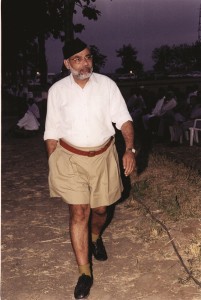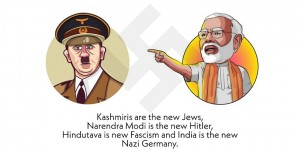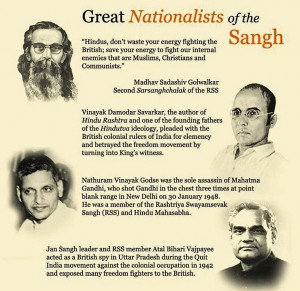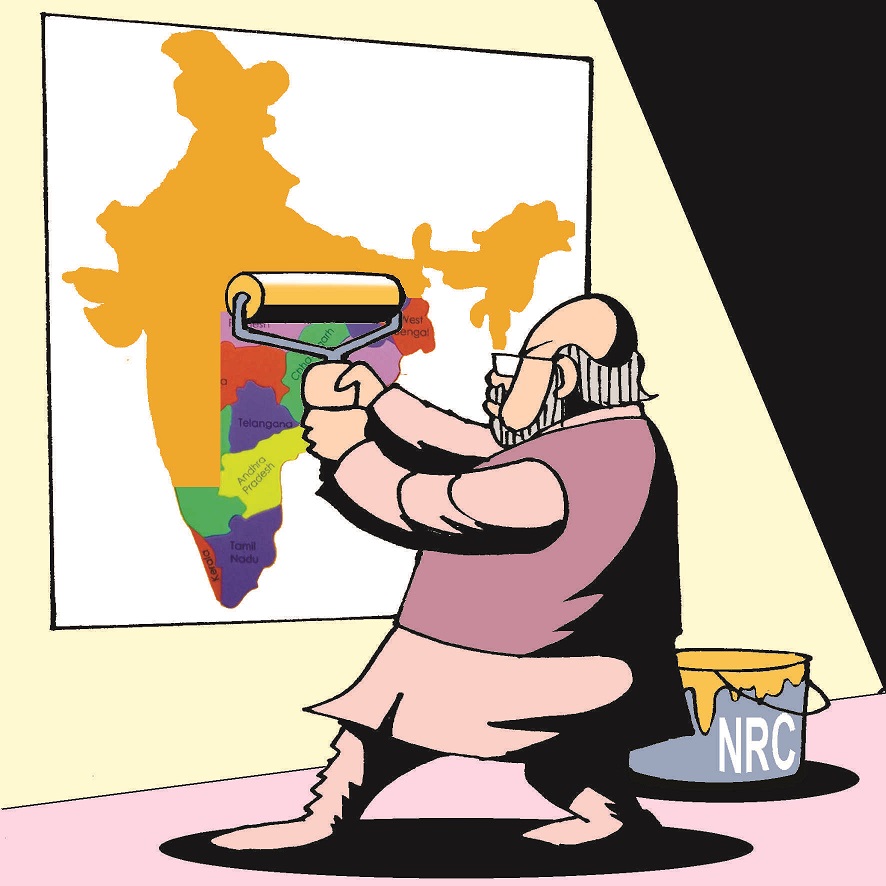Violation of Human Rights in India and Kashmir
Policy Imperatives for Pakistan
Mairaj ul Hamid Nasri
The Preamble to the Indian constitution describes the country as a “Sovereign Socialist secular Democratic Republic”. Article 25 (1) of the constitution guarantees to all citizens of India right to freedom of religion in these words: “… all persons are equally entitled to freedom of conscience and the right freely to profess, practise and propagate religion.” Nevertheless, since the election of Narendra Modi as country’s Prime Minister in 2014, many actions of the government have caused discomfort among minorities, e.g. drastic changes and manipulation in school curriculum, ban on beef and cow slaughter, attacks on churches, harassment of Christian nuns and the promotion of violent organizations of reconversions. Numerous reports of United Nations, United States Commission for International Religious Freedom (USCIRF) and Amnesty International evidence gross violation of human rights in India. Now, India has become ‘Hindia’ because of its persistent support to Hindutva and incessant violations of human rights of minority communities, i.e. Muslims, Christians and others.
The origin of Hinduism as a religion in India has deep roots. The word Hindu is derived from Indus. The multiplicity of languages, polytheism, diversity in cultures and caste system were defining characteristics of the Hinduism. But, fascination with the Enlightenment, French Revolution and nationalism, evoked a yearning for glory among the Hindus of the Subcontinent. The road to achieving this cherished goal required an identity similar to that of Islam and Christianity – both were monotheistic religions. So, many reform movements for achieving the desired goals started; most notable among them being the Brahmo Samaj, spearheaded by Ram Mohan Roy in Bengal in 1828. The influential articulation of the Hinduism and its basis was given by Dayananda Saraswati; a Brahmin hailing from Gujrat. Dayananda was influenced by Brahmo Samaj Movement. He established a more popular and grassroots organization named Arya Samaj (Noble Society) and claimed that all non-Hindus were Hindus basically, and that they should be reconverted. Arya Samaj started the Shuddhi Movement in order to bring back into the fold of Hinduism the people who had converted to Islam and Christianity. Notwithstanding this, the War of Independence of 1857 was fought by Muslims and Hindus together but Muslims had to bear the brunt as only they were found guilty and thus circled for punishment. Hindus, on the contrary, were favoured, and systematic efforts were launched to create a gulf between Muslims and Hindus. Here, attempts to develop India into a Hindu state were started.
The political aspect of Hinduism was developed by Vinayak Damodar Savarkar. He is the most influential political voice of Hindu identity. Savarkar articulated the concept of Hindu Rashtra (Hindu state or nation) with a clear-cut identity: namely Hindutva or Hinduness. According to his philosophy, religion was only one aspect of Hindu identity. To him, the Hindu nation was based on three premises: Sacred territory of Aryavarta (Subcontinent); jati (race); and language. He subscribed to the European model of nation-state which assumed that the cultural boundaries of a nation must match the political boundaries of a state. In Europe, it meant a uniform race, religion, language and culture as the defining features of a nation. In India it meant Hindu-Hindi-Hindustan, the slogan coined by Savarkar. The Idea of Akhand Bharat is central theme of Hindu nationalism. Hindutva considers it a sacred duty to fight for it.
The political resurgence of Hindu nationalism on the basis of Hindutva constitutes a potential ideology of “Politics of supremacy through maximization and manifestation of power”. Hindutva followers believe in Chanakya’s philosophy and practical application of ‘Offensive Realism’. It strives for construction of an Exclusive Society through Religio-political and Socioeconomic polarization. The violent ideology of Hindutva symbolizes Indian colonialism and manifests Indian ideology of Hindu supremacy. The 2015 ‘Ghar Wapsi Program” of RSS during Modi’s first tenure exposes the evil intentions of RSS and BJP for violating the fundamental right of freedom of religion. In just one year, under the said program, more than 33,000 people were reconverted to Hinduism and about 48,000 were stopped from abandoning Hinduism. The organization behind all these developments is Rashtriya Swayamsevak Sangh (RSS). Keshav Baliram Hedgewar founded RSS in Nagpur in 1925. This organization was established to not only propagate Hindutva ideology but also to infuse new physical strength into the Hindu community. At the time of independence in 1947, there were about 60000 volunteers but RSS did not have much impact on public life and remained out of politics.
In January 1948, MK Gandhi was killed by an RSS member Nathuram Vinayak Godse, and Prime Minister Jawaharlal Nehru immediately banned the organization. These events gave rise to RSS as a political party; Bharatiya Jana Sangh was created in 1951, now Bharatiya Janatha Party (BJP). So, a militant organization founded a political party in India for providing legitimacy to their illegitimate and inhuman activities in future. Current membership of BJP is between five and six million. Anti-Pakistan propaganda and establishment of Akhand Baharat are integral parts of the training of BJP members.
The current focus of RSS and BJP is on victimization of Kashmiris, cow vigilantism, love jihad, allegiance to Hindu symbols, Ghar Wapsi Program, and stigmatization of Muslim cultural heritage in India. The incumbent Prime Minister of India, Narendra Damodardas Modi, is their current leader who proudly accepted during his speech in June 2015 at Dhaka University his country’s involvement in dismemberment of Pakistan and creation of Bangladesh after a war in 1971. Admitting that there had been a conspiracy to divide Pakistan, he said the establishment of Bangladesh was a desire of every Indian and that’s why India’s forces fought along with the Mukti Bahini, thus creating a new country. He further admitted that he was one of the young volunteers who came to Delhi in 1971 to participate in the Satyagraha Movement launched by Jana Sangh as a volunteer to garner support for the Mukti Bahini members.
Today’s Modi-fied India has opted for implementation of Chanakya’s philosophy and Machiavellian politics. India wants to make Pakistan as well as the Kashmiris know that freedom of Kashmir is a mere dream and is an unachievable goal. It also wants to instil in Kashmiris a feeling that nobody is ready to listening to their voice at international level and that Pakistan is not in a position to help them. Modi’s India aspires to achieve territorial and demographic dominance over Kashmir to change the thinking of Pakistanis and Kashmiris and through inhuman and brutal activities, Modi wants to make Kashmiris believe that their future is with India only. Today, the valley of Kashmir is on fire. It has become a manifestation of Hindutva’s manifestation of coercive power. It symbolizes a dream of Akhand Bharat.
India wants to make Pakistan as well as the Kashmiris know that freedom of Kashmir is a mere dream and is an unachievable goal. It also wants to instil in Kashmiris a feeling that nobody is ready to listening to their voice at international level and that Pakistan is not in a position to help them. Modi’s India aspires to achieve territorial and demographic dominance over Kashmir to change the thinking of Pakistanis and Kashmiris and through inhuman and brutal activities, Modi wants to make Kashmiris believe that their future is with India only. Today, the valley of Kashmir is on fire. It has become a manifestation of Hindutva’s manifestation of coercive power. It symbolizes a dream of Akhand Bharat.
Kashmir has become a complex issue of ‘religious nationalism’. Hundreds of thousands of Kashmiris have been subjected to victimization and their persecution goes on unabated. India consistently refuses to honour the commitment it made to the Kashmiris and the world at large in the form of UN resolutions. On international level, it is a failure of the global system to redress the injustices the Kashmiri people are suffering from and to check illegitimate Indian moves including gross human rights violations. In post-August 05 situation, only some voices in the parliaments of Britain, European Union, and the United States have been heard for Kashmir. The deafening silence, rather unfriendly role of the rulers of the Muslim world is perplexing. Due to persistent persecution, the Kashmiris suffer from psychological, emotional, political and economic complexes. India’s recent actions have further complicated the situation. Continued curfew has converted Kashmir into the largest open prison in the world. International Humanitarian Law is obstinately violated. Women, children, and old people are the most vulnerable in Kashmir. Police stations in Srinagar and other cities are packed with weapons like guns, swords, knives and other killing instruments. Utter humiliation is inflicted on a huge population. Islamophobia is used as a strategic weapon by the BJP to not only push forward with ultra-nationalist policies but also to delegitimize the Kashmiris’ struggle for freedom by equating it with the rhetoric of “Islamic terrorism.”
The policies of Modi regime are in exact opposition to the secular image of India. The 21st century’s fascism is in full swing in India and Kashmir, and hypernationalism, which has already led the world to several bloody wars including Second World War, is fast gaining ground in India. School textbooks hail Hitler and Nazism in Gujarat, UP and many other states. The workers of RSS are supported covertly for targeting minorities on individual and collective capacities. Anti-Pakistan and Anti-Islam propaganda on national and global level is integral part of Modi’s speeches and actions.
In these circumstances, Pakistan should further strengthen its diplomatic efforts to make India immediately lift curfew, release all political prisoners, remove all restrictions on communication and withdraw all its security forces from the occupied valley of Jammu and Kashmir. Moreover, it should vociferously oppose and expose to world community any moves aimed at changing the demographic composition of the J&K. Pakistan also needs to work out modalities for plebiscite under the UN auspices for the Kashmiri people. The indigenous character of the movement needs to be highlighted. At the same time, individual stories and case studies should be highlighted in awareness campaigns. Legal ways and means to fight such cases under the international legal regimes need to be taken up. During the whole campaign, the principal focus should be on Kashmiris’ right to self-determination which is the most important among all human rights and which has a strong legal foundation as well. Pakistani embassies should mobilize the Kashmiri diaspora for lobbying.
To conclude, we can say that India has lost in Kashmir emotionally and politically. Due to dominance of Hindutva and dictatorial politics, democracy is fading away in the so-called world’s largest democracy. Given the rise of saffronization and the backing of state institutions to Hindutva followers, questions are being raised also on the safety and credibility of India’s nuclear command and control. There are all possibilities that Indian nuclear weapons may fall in the hands of Hindu radicals, which would be a nightmare for international status quo. Repercussions of Hindutva will also multiply the security anxieties of USA in South Asia. Hindutva poses a potent threat to regional and international peace. Global powers and regional as well as international organizations need to come forward and play their due role in neutralizing India’s jingoistic and fanatic designs and policies, and compel it to restore the pre-Aug 05 status of Indian-Occupied Kashmir.
The author teaches at department of Political Science, University of Malakand. He can be reached at: mairajulhamid717@gmail.com.
 Jahangir's World Times First Comprehensive Magazine for students/teachers of competitive exams and general readers as well.
Jahangir's World Times First Comprehensive Magazine for students/teachers of competitive exams and general readers as well.



